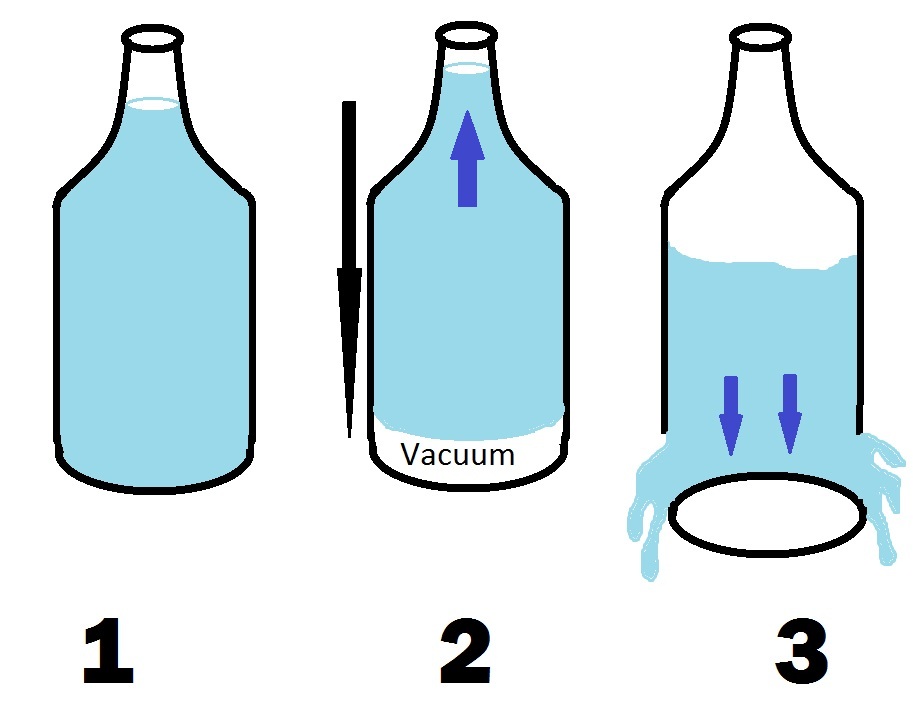| Home |
| Evidence |
| Physics |
| Other
Cavitation |
| References |
According to dictionary.com,
Cavitation is:
"the rapid formation and
collapse of vapor pockets
in a flowing
liquid in regions of very low pressure,
a frequent cause
of structural damage to propellers, pumps, etc."
1. Drink the contents of the bottle after opening.
(Carbonated beverages do not work because they will fizz instead of cavitate)
2. Rinse the bottle out and fill half way up the neck with water.
(if using tap water, let it sit a while to let the micro bubbles escape)
3. Go outside, preferably above a trash can or some sort of receptacle.
(nobody wants to step on broken glass)
4. Grip the neck of the bottle with your offhand making your hand and
the opening of the bottle an even surface.
5. Slam the bottom of your palm on your strong hand into the top of
the bottle and watch as the bottom of the bottle breaks!
Figure
1:
A bottle is filled to a level half way up the neck with water, or some
other uncompressible
liquid.
Figure 2:
After the bottle is struck on the top with a very large force, the
bottle moves
down while the water inside moves up creating a vacuum in the bottom.
Figure 3:
The vacuum sucks the water back in a downward direction with a
devastatingly
large force. The water slams into the bottom of the bottle and breaks
the glass
out, spilling all the contents and glass.

A few helpful hints:
* Use hot water, the vapor pressure increases dramatically making it easier for the water inside to cavitate. This goes into much deeper physics about fluid mechanics and properties.
* Some bottles are stronger than others, pick a weak bottle. You can tell by the thickness of the glass. Start small, and eventually breaking wine bottles will be a possibility.
* Only hold the top of the neck of the bottle, Hands do not mix well with glass shards.
* Listen for a "Ping" noise, if you are hearing that, you are very close to breaking the bottle.